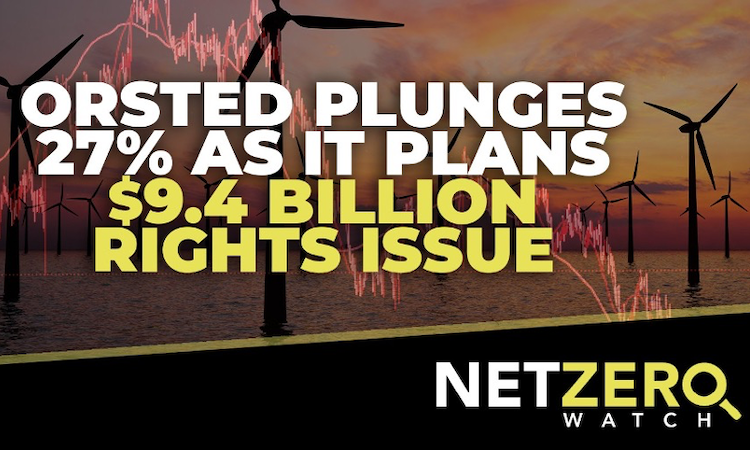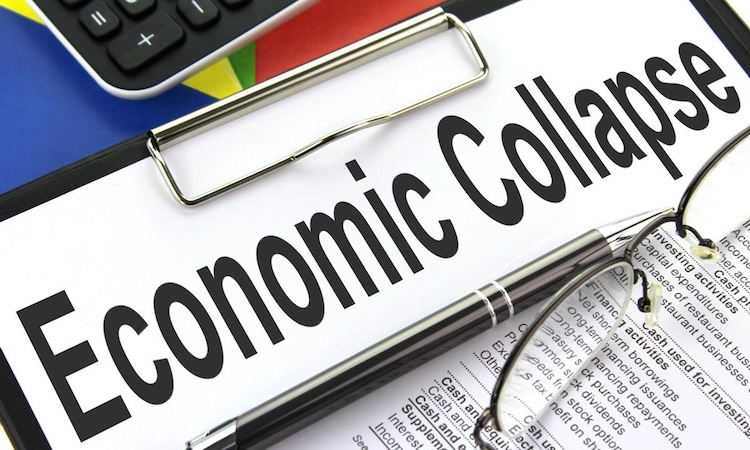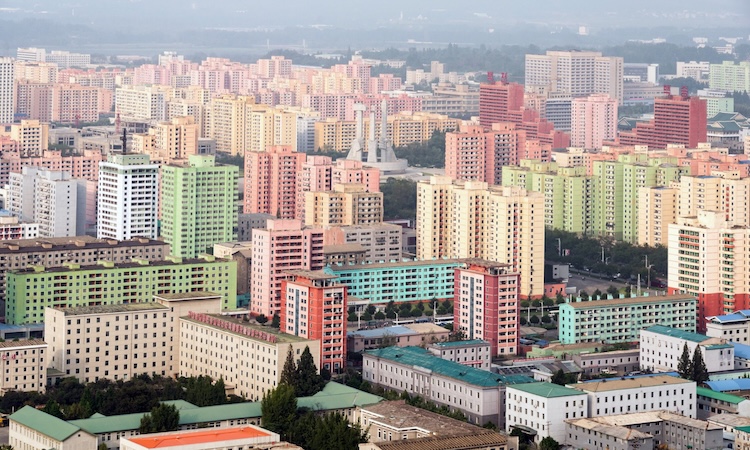Energy debt has soared over the last few years, with Ofgem, the government’s energy sector ‘regulator’ estimating that collective gas and electricity debt is in the order of £2.3bn. Debt on prepay meters alone now sits at a staggering £1.032bn; an increase of more than 300 percent since 2019, when it stood at £328m.
Almost eight million people had to borrow money to pay their energy bills in the first six months of 2023, and this number is expected to rise. And this at a time when energy corporations are bragging about record profits to their shareholders.
On top of their usual expropriation of the surplus labour created by workers, these monopoly energy corporations are making use of rising inflation to hide obscene price-gouging – using the state to facilitate the process through what are laughably termed ‘price caps’. This is combined with a rapid expansion in the forced installation of prepay meters under threat of imprisonment.
Prepay for those who can’t pay
We’ve included the figures regarding prepay meters above as this is becoming the energy monopolies’ preferred method for getting to the front of the queue to receive their share of workers’ pay packets. It is also an extremely efficient way to get ‘bad’ customers disconnected without too much publicity; a process euphemistically described by these corporate bandits as ‘self-disconnection’.
A bailiff ‘educator’ for Arvato, the debt collection firm that Centra (British Gas parent company), uses to enforce meter changes, has bluntly stated: “Honestly, it’s a little bit cheeky. Basically, the government says you can’t disconnect residential customers, so what we do is we install a prepayment meter and then if they don’t top up, they self-disconnect. So, we don’t actually disconnect them. It’s a bit of a laughable loophole.”
We fail to see the humour.
For customers already ‘privileged’ enough to have a smart meter (which we paid for in increased energy bills since their inception) even stopping entry to our home isn’t proof against being switched to a more expensive and precarious prepay system.
As 350,000 households found out last year, this can be done remotely by energy firms if a smart meter has already been installed. (Hence the £50 inducement offered by every energy company to have a smart meter put in, and the accompanying barrage of PR about ‘efficiency’, ‘convenience’ etc.)
‘Bad’ customers
The antagonistic relationship between capital and labour is on display in the language the bourgeoisie and its representatives use behind closed doors in their ‘not for workers’ ears’ financial conversations. Where the bourgeoisie and their army of hired managers see ‘bad’ customers, customers who can’t pay, customers who can’t aid them in their insatiable quest to realise a profit, proletarians see Bridget a 53-year-old mental health therapist from Darlington:
“I had to ask for help. It was the first time I turned to the energy company to ask for help and now, every week, I have to put money onto the meter, which goes straight onto the debt. As a mental health professional, I do have tools to manage my anxiety, but I know the emotional impact and stress a debt like this can have on many people.
“It’s totally unfair that these energy companies can make such huge profits but can’t help people who’ve turned to them for support in an emergency.” (Energy debt scandal revealed – thanks to 38 Degrees supporters by Hannah Graham, 38 Degrees, 1 September 2023)
Or we see Melissa, 42, a mother of three who “always paid her rent ‘religiously’ and was never behind on rent payments. Melissa, a full-time carer for two disabled children, struggled to pay energy bills. The debt now gets taken from her prepayment meter, even if that means cutting off her heating and power.
“At one point we were having to pay £10 a week off on the debt – I would put £10 on the meter and it would disappear onto the debt straightaway, leaving us with no credit. I couldn’t afford to have the electricity on, I couldn’t keep the house warm – but I still had to put money on the meter that we couldn’t use for power.
“It’s fair enough that you have to pay what you owe, but in our situation it felt like we could never pay it off. We were self-disconnecting almost every day; we’d be left without power overnight. Two of my children are disabled and it’s bad for their health. Last winter, my son ended up in hospital because his asthma got so bad with how cold and damp it was. People shouldn’t have to live like that.”
Director Heidi Chow of charity campaign group Debt Justice says: “Energy debt is devastating for millions of households who can no longer afford to cook meals, keep the lights on or operate medical equipment. With winter fast approaching, the government needs to get its head out of the sand and set up a Help to Repay scheme to tackle unpayable debt in a fair way.” (Rising energy debt creates mental health crisis for households, End Fuel Poverty Coalition, 29 March 2023)
People shouldn’t have to live like this
So what is the ‘right’ (according to the bourgeois state) way to solve the impossible situation of having to pay back a debt you can’t afford at a higher tariff than when you gained the debt while trying to keep yourself fit for work in a cold, damp, drafty home eating cheap, unheated and unhealthy food?
Make a complaint of course! Well, let’s see how that’s working out. Over the last five years, energy firms received 700,000 complaints about treatment of debt-burdened customers. Of these, 161,103 complaints related to disconnection and debt issues – of which 40,458 were about prepayment meters.
Nothing was done over that five-year period until an undercover Times investigation forced Ofgem into begrudging and belated action. The ‘something’ it chose to do was to suspend the energy firms’ right to forcefully install prepay meters … for one whole month.
Powerful monopolies get a padded stick
Ofgem, the government’s supposed ‘energy watchdog’ is tasked with monitoring the energy monopolies’ activities by ‘holding them responsible’ if they rip off customers. The ‘regulator’ sets ‘caps’ on what can be charged, recording and publishing the numbers and types of complaints received about abuses. In extreme cases, Ofgem has the power to impose fines, order ‘redress payments’ (ie, refunds of overcharges) and impose operating restrictions.
While these powers are occasionally wielded, it is always in such a weak and tokenistic way as to be essentially meaningless. Fines, for example, have been minuscule in relation to operating profits since 2010. Providers were penalised just £83.2m in fines and given redress orders amounting to £559.1m – a total of £642.3m across the entire industry.
Let’s imagine these 12 years’ worth of ‘punishments’ had been received by a single company in a single year. Centra made a profit of £948m in 2019, the entire force of a dozen years’ industry-wide sanctions applied to just this one year’s profits would have left the company with an operating profit of £305.7m. Not bad pickings when British workers are struggling to access power.
Now consider that Centra’s profits were £3.3bn in 2022 – more than triple what they were in 2019 – and we can see that the existing fines regime is no deterrent at all. Indeed, as a clearly acceptable cost of doing business, the present state of affairs might be better described as ‘legal for the rich’.
The state
To look past the form of these ‘watchdogs’, supposedly here to safeguard the public from rapacious corporations, and see their real essence, we need to understand something about the state and what purpose it serves in class society. The state and its institutions (in this case, the energy regulators) aren’t magnanimous creations, neutral and existing for the betterment of all. Nor are they merely annoying obstacles to ‘freedom’.
“Rather, [the state] is a product of society at a certain stage of development; it is the admission that this society has become entangled in an insoluble contradiction with itself, that it has split into irreconcilable antagonisms which it is powerless to dispel.
“But in order that these antagonisms, these classes with conflicting economic interests, might not consume themselves and society in fruitless struggle, it became necessary to have a power, seemingly standing above society, that would alleviate the conflict and keep it within the bounds of ‘order’; and this power, arisen out of society but placing itself above it, and alienating itself more and more from it, is the state.” (Friedrich Engels, The Origin of the Family, Private Property and the State, 1884, our emphasis)
The minuscule fines, endless reports and empty recommendations (efforts to ‘alleviate the conflict’) of the supposed ‘regulators’ do nothing to solve the antagonisms between classes with conflicting economic interests (the proletariat and the bourgeoisie), they merely attempt to ameliorate them – to distract us with the hope that someone is doing something, anything, to curb bourgeois looting, or to persuade us that inherent failures of the capitalist mode of production are one-offs, the fault of this or that ‘bad apple’.
To dispel a common misconception that the state is indifferent to both sides of the class divide and acts for the ‘best possible good’ of society as a whole, we again turn to Friedrich Engels:
“Because the state arose from the need to hold class antagonisms in check, but because it arose, at the same time, in the midst of the conflict of these classes, it is, as a rule, the state of the most powerful, economically dominant class [today, the bourgeoisie], which, through the medium of the state, becomes also the politically dominant class, and thus acquires new means of holding down and exploiting the oppressed class [today in Britain, the proletariat].” (Ibid)
Once this is understood, the seemingly contradictory behaviour of such watchdogs as Ofgem becomes all too clear. They do the bare minimum needed to keep social peace while obscuring the real causes of workers’ justified anger. This obfuscation is at best an obstacle to developing a class-conscious understanding; at worst, it can lead working-class people to actively work against their own class interests, instead helping to prop up the crumbling capitalist system that oppresses them.
Not only do Ofgem and institutions like them do as little as possible to impinge on the capitalists’ ability to maximise profits – they actively facilitate profiteering. Hence the patently price-gouging nature of the so-called ‘price cap’ – a licence to rinse the workers if ever there was one.
A workers’ state
The bourgeois state’s intervention to shield the energy monopolies from the growing public backlash against obscene profits and crippling bills is not what workers need. Asking the dogs to betray the master has ever been a lesson in futility.
What is required is the permanent and complete nationalisation of the energy industry, expropriation of the energy monopolies and their subordination to a national plan that serves social need, not corporate greed. This short-term solution would do much to lessen the load on workers, and the act of achieving it would teach valuable lessons in solidarity, class awareness and the power of the proletariat; the ruling class in waiting.
A workers’ state – not a dictatorship of the bourgeoisie, but a dictatorship of the proletariat – is the only path out of the endless cycles of economic crises and the forcing down of workers’ living standards. Only with the working class in charge of the economy, with an entirely new type of state built for the purpose, can we bring all production (including energy) into collective ownership, allowing industries to be operated, planned and maintained to serve the needs of the producers themselves.
Without the bonuses and dividends being constantly siphoned off our collective wealth (a heavy tax that increases production costs, limits expansion and keeps maintenance to the bare minimum), we could use the surplus created by workers’ labour to raise the pay and conditions of every worker, as well as to invest in increasing the powers of production and guarantee access to life’s necessities to all.
In this way, the relations of production (which under capitalism consist of private ownership of big productive forces like factories and farms etc) would be brought into conformity with the character of production (which is already social – no factory can be operated without a huge team of people working together!). And the fruits of our collective labours could finally be used to improve the lives of the vast masses of the people.
















